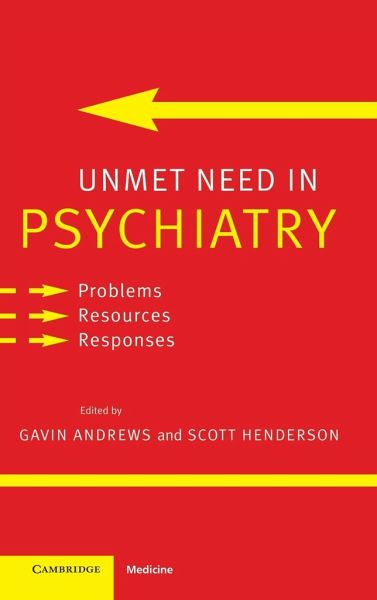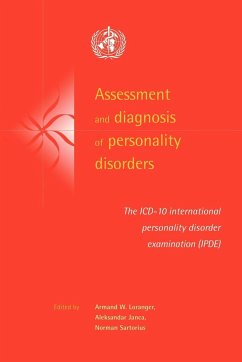
Unmet Need in Psychiatry
Problems, Resources, Responses
Herausgeber: Andrews, Gavin; Henderson, Scott
Versandkostenfrei!
Versandfertig in 1-2 Wochen
187,99 €
inkl. MwSt.
Weitere Ausgaben:

PAYBACK Punkte
94 °P sammeln!
This book considers ways to resolve the imbalance between the demand and supply of mental health services. Treatment services in most countries reach only a minority of people identified as suffering from a mental disorder. Few countries can provide adequate health services for all the mentally ill, yet none has developed a rational system to decide who should be treated. The questions are clear. Could we develop a staged treatment process to reach all in need? If not, how do we decide who to treat? What should the criteria be for deployment of scarce treatment resources? How do we determine s...
This book considers ways to resolve the imbalance between the demand and supply of mental health services. Treatment services in most countries reach only a minority of people identified as suffering from a mental disorder. Few countries can provide adequate health services for all the mentally ill, yet none has developed a rational system to decide who should be treated. The questions are clear. Could we develop a staged treatment process to reach all in need? If not, how do we decide who to treat? What should the criteria be for deployment of scarce treatment resources? How do we determine such criteria? What are the ethical implications of applying such criteria? In this pioneering work, an international team of eminent psychiatrists, epidemiologists, health administrators, economists and health planners examine these questions. The result will inform and encourage all concerned with the equitable provision of mental health care.














